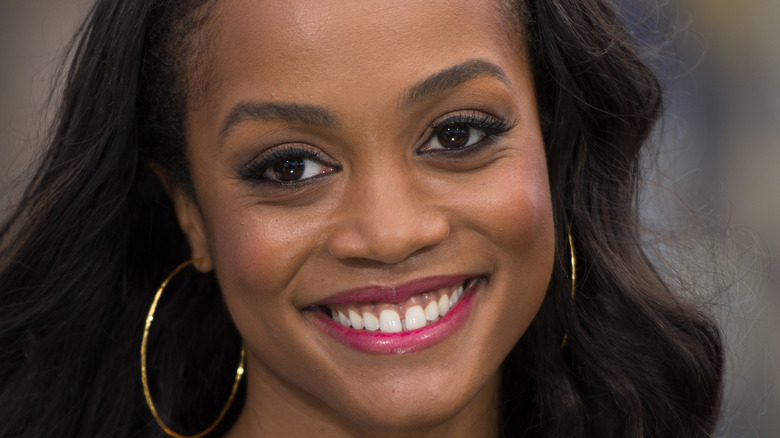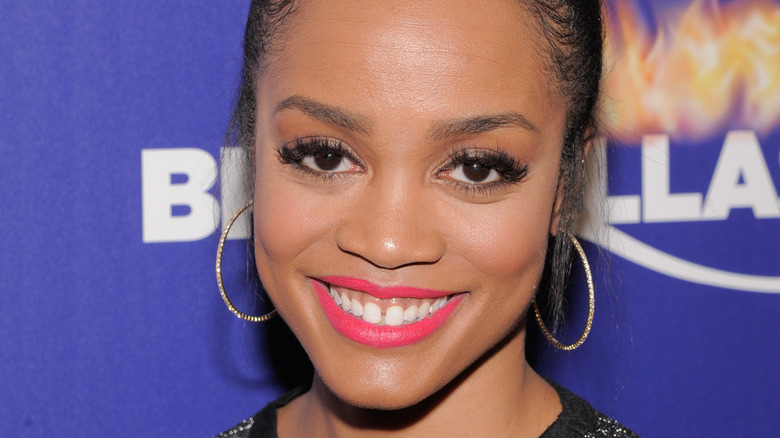The Real Reason Rachel Lindsay Cried On The Bachelorette
Taking on the title of "the first Black Bachelorette" is a heavy crown to wear, but Rachel Lindsay bore the responsibility with grace. Her season aired in 2017 (via IMDb) and ended with her choosing now-husband Bryan Abasolo. The lovebirds tied the knot two years later in a 2019 ceremony in Mexico. After trying long-distance, the couple has finally settled together in L.A. (via People.)
Lindsay is one of only three Black contestants to search for love on the "Bachelor" franchise and each has ended up choosing a white partner. Most recently Bachelor Matt James caused controversy after his chosen rose-winner's racist past emerged via social media, including attending an "antebellum plantation-themed" formal in 2018 (via Twitter.) The show has a long way to come in terms of conversations about race and identity, but after firing long-time host Chris Harrison following an unsettling "Extra" interview, it seems the ABC network is committed to making those changes. Unfortunately, the fallout from James' season is just the tip of an undiscovered iceberg.
On Showtime variety series "Ziwe", host and comedian Ziwe Fumudoh interviewed Lindsay about her Bachelorette journey and her answers revealed a seedy underbelly to the hit reality show.
Rachel Lindsay's season of The Bachelorette cast men who didn't date Black women
During Lindsay's interview, Fumudoh made the observation that, "All three of the Black Bachelors and Bachelorettes have ended up with partners who are not of color." Fumudoh is referring to Lindsay, James, and the most recent Bachelorette Tayshia Adams (via Insider). Lindsay revealed that she had been worried about this outcome before filming even began stating, "People of color are held to certain standards that their white counterparts aren't."
Turns out Lindsay's selection of Black male suitors wasn't ideal and her lack of chemistry with them wasn't for lack of trying. "It's a casting issue," Lindsay explained. "There was a point where I broke down on camera, and they used my tears for something else, but I was getting upset at the selection of men of color." Lindsay went on to disclose that "several" of the men of color from her season "didn't date Black women" and were only cast for ratings. This disturbing tactic left Lindsay feeling exploited, responding to showrunners, "You think that's interesting? That's my life."
She hopes ABC will eventually diversify, not just its cast, but "the people behind the camera," so future casting mistakes like this can be avoided.

